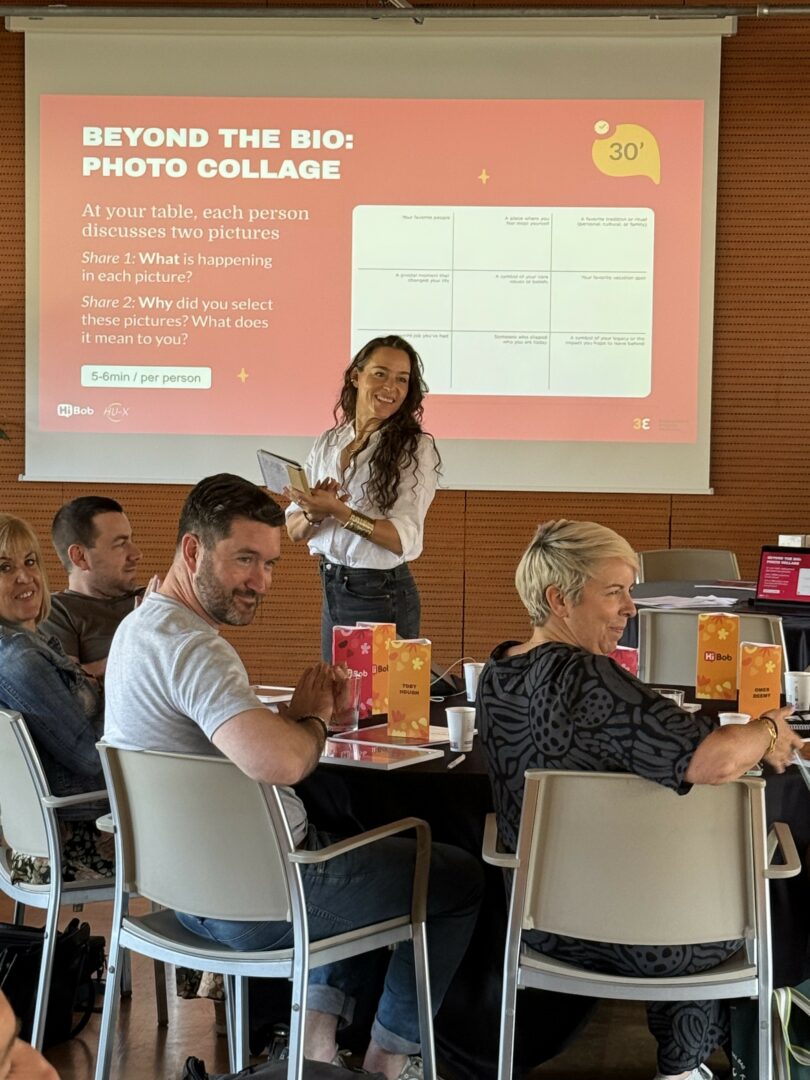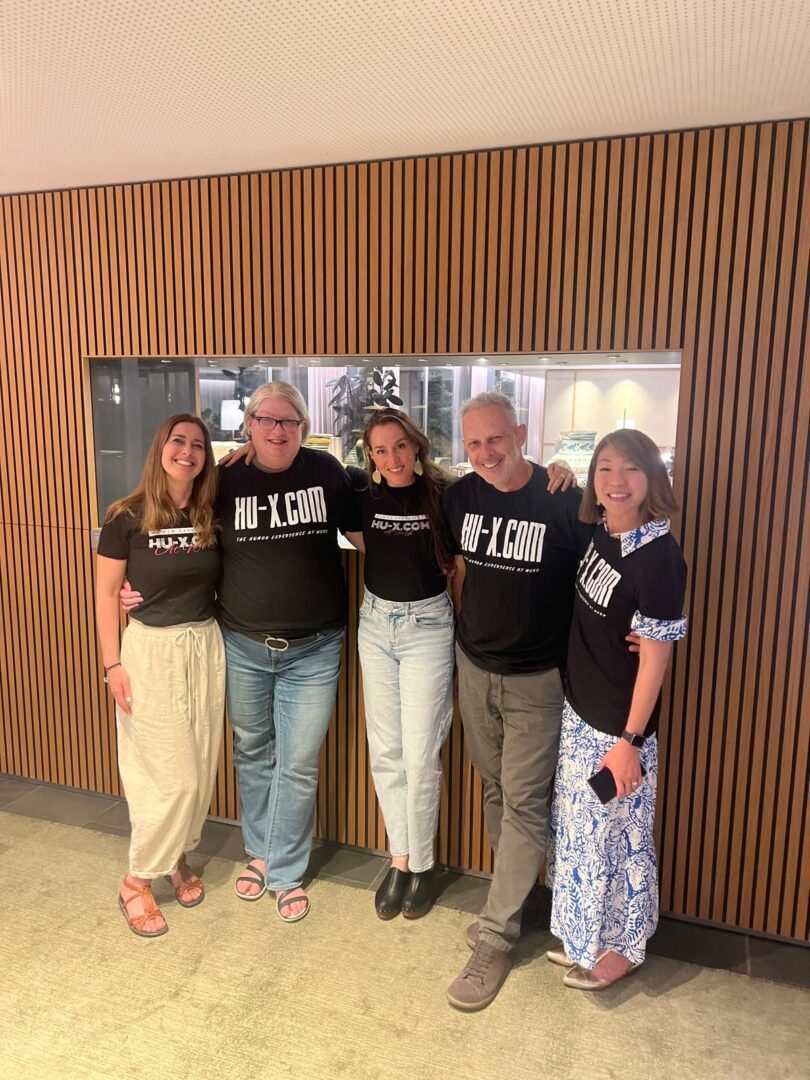We recently connected with Tia Katz and have shared our conversation below.
Tia, so good to have you with us today. We’ve got so much planned, so let’s jump right into it. We live in such a diverse world, and in many ways the world is getting better and more understanding but it’s far from perfect. There are so many times where folks find themselves in rooms or situations where they are the only ones that look like them – that might mean being the only woman of color in the room or the only person who grew up in a certain environment etc. Can you talk to us about how you’ve managed to thrive even in situations where you were the only one in the room?
Until seventh grade, I failed every subject. My undiagnosed dyslexia convinced me I simply wasn’t smart, and once you believe you’ve already failed, fear loses its grip. That early reset hard-wired two habits: experiment boldly and learn fast. Straight out of high school, I joined a construction crew building Intel cleanrooms. I was the only and very petite woman on-site, yet that “disadvantage” let me slip into tight ceiling spaces the guys couldn’t reach and keep the project on schedule. When you’re different, find the niche only you can fill and make it indispensable.
In college, I enrolled in a class where I was the lone Jewish student among Muslim Arab classmates. I wasn’t there to stand out; I was there to understand. By semester’s end, we’d swapped hummus recipes, visited one another’s homes and discovered that empathy begins with showing up, listening and sharing a piece of yourself.
Corporate life still delivers subtle cues to “fit in.” I’ve learned to treat those moments as micro-invitations to widen the aperture of what leadership can look like. My presence signals that difference is an asset, not an exception. Every room sends messages that conformity is safer. I stay focused on why I’m there: to contribute a perspective no one else can. That mindset not only frees me from chasing approval; it also produces better ideas, stronger teams and better outcomes.

Appreciate the insights and wisdom. Before we dig deeper and ask you about the skills that matter and more, maybe you can tell our readers about yourself?
Hu-X is the human experience, operationalized. We exist to bring depth, honesty and clarity back into how people lead and how people work. Our global network of leadership development experts, executive coaches, culture architects and forefront SMEs in AI partners with organizations that are ready to go beyond policies, policies, and office politics We help leaders create environments where people no longer have to self-edit to survive.
The most exciting part of what we do is simple. We meet people at the edge of change and give them the tools, language and support to walk through it. Whether that’s a company rethinking culture after rapid growth or a team rebuilding trust after burnout, we help them lead with what’s real.
Our Covering Study with HiBob showed us what we already knew in our gut. 97 percent of people are still hiding parts of themselves at work. That’s not just a problem. It’s a design flaw. At Hu-X, we’re helping organizations redesign from a place of truth.
Right now, we’re expanding our practitioner network and releasing new research that explores how identity, psychological safety and leadership pressure shape performance. But at the core, our work is not about what’s next. It’s about what’s always been essential. People. Wholeness. And the courage to build something better.
If you had to pick three qualities that are most important to develop, which three would you say matter most?
Reflecting on my journey, three qualities stand out as pivotal: boldness, humility, and resilience. While I value boldness and humility, I recognize their dual-edged nature. Excessive boldness risks reckless decisions, while overdone humility may lead to self-doubt or undervaluing one’s expertise. Resilience, in the face of adversity or failure, also comes to mind—not as “fighting through” challenges, but as granting yourself the space to be wherever you need emotionally. These moments can be pivotal but trust that in time you’ll emerge as a new, evolved version of yourself. Research shows that “what doesn’t kill you makes you stronger” is only true if you have the right conditions for processing and reflection.
For early-career professionals, I’d caution against adopting these traits as blanket solutions. While resilience is universally valuable, boldness and humility vary in applicability. Moderation is key—boldness should be tempered by analysis, and humility should not overshadow self-awareness. To align these qualities with career growth, I recommend defining goals through personal values, exploring multiple pathways (e.g., mentorship or certifications), and testing assumptions through small projects. Regular self-assessment and mentorship can further refine these approaches, ensuring adaptability over rigid adherence to ideals.
Finally, we’re surrounded by grand slogans—“where there’s a will, there’s a way,” “shoot for the stars,” “go big or go home,” “keep your eye on the prize,” and the ever-present “never ever give up”—that can trap us in impossible standards and constant anxiety about falling short. Ambition is powerful, but before you charge ahead, study those who’ve pursued a similar vision: How many set out without a clear roadmap, and what distinguished the successes from the rest? Break your bold dream into concrete milestones—what does a “first win” look like in three months? Find mentors or peers who can offer real-world feedback, and run small-scale experiments to test your assumptions before you commit too much. Treat your ambition as a hypothesis—plan, act, learn, and adjust—so that every pivot or pause becomes a data point, not a defeat. This disciplined cycle transforms blind persistence into continuous improvement, preserving both your enthusiasm and your well-being.

Looking back over the past 12 months or so, what do you think has been your biggest area of improvement or growth?
My greatest growth this year, and for the past four years, has been shifting from “prove myself” mode to “serve the cause” mode.
Twelve months ago, my internal soundtrack whispered, “Show them you’re the smartest person here.” That drive helped me break barriers early in my career, but it also made me crowd out other voices. I decided to rewrite that mental script and focused on three practices:
Deliberate listening – I now open every client meeting by asking, “What outcome would make this time valuable for you?” Then I stay silent until they finish. It sounds simple, yet it consistently surfaces insights I would have missed while drafting a rebuttal.
Quieting the inner scoreboard – When I feel the urge to prove something, I label it (“Ah, achievement voice”) and breathe it down to neutral. This tiny pause lets curiosity replace ego.
Lifting others in real time – I make a point to spotlight a teammate’s idea during each call. The ripple effect is immediate: richer discussion, higher trust, and better solutions for our clients.
Contact Info:
- Website: https://www.hu-x.com/
- Instagram: https://www.instagram.com/hu_x_at_work/
- Facebook: https://www.facebook.com/humanexperienceatwork
- Linkedin: https://www.linkedin.com/company/hu-xatwork/

Image Credits
Hu-X
so if you or someone you know deserves recognition please let us know here.




